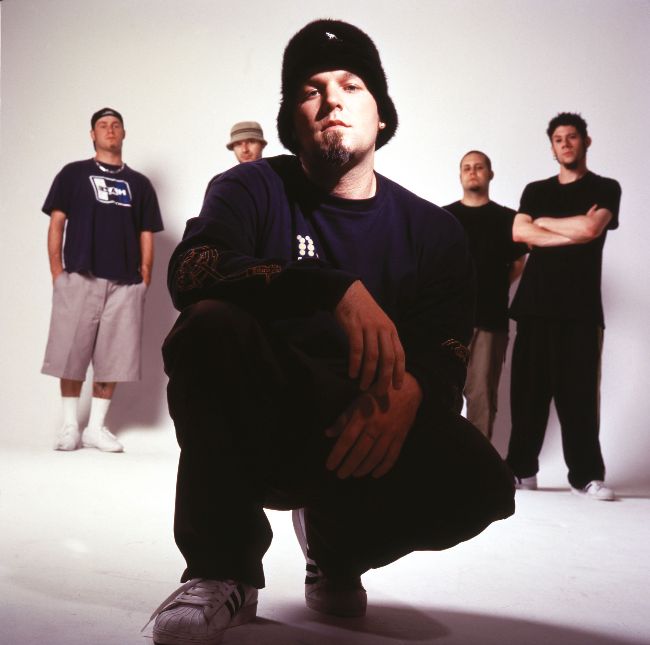limpbizkit VS THE WORLD
Chocolate Starfish… would see nu metal’s obnoxious second generation earn its crowning achievement. It would also see Limp Bizkit become rock’s new public enemy number one
WORDS: MERLIN ALDERSLADE

If Korn’s self-titled 1994 debut represented nu metal at its rawest, purest roots, then surely no album better personified its rise to obnoxious, all-conquering glory than Chocolate Starfish And The Hot Dog Flavored Water. Limp Bizkit’s loud, lairy and ludicrously titled third record ushered in the moment where alternative music’s relationship with the mainstream reached critical mass. It was the album that confirmed a once unthinkable dynamic: metal was, even if only for a moment, the biggest genre in the world. True, Hybrid Theory may have arrived a mere week later to take things even further, but that album took a little while longer to become the unstoppable, history-making juggernaut we now recognise it as. Chocolate Starfish…, meanwhile, was an instant phenomenon; shifting more than a million copies in a week, it became the fastest-selling rock album of all time and completed Limp Bizkit’s evolution from metal’s outsider frat boys into legitimate pop culture icons.
“I never thought Limp Bizkit was gonna be as large as it was,” admits guitarist Wes Borland today down a phone line from his home in Detroit. “Then the record sold a million in the first week. It was just ridiculous. There was a point in which things got so big that I don’t remember getting them getting bigger.”
Things were already getting pretty damn big for Limp Bizkit by the turn of the millennium. In an era where metal’s 90s generation had all but prised the baton from its elder statesmen, Bizkit looked set to be the scene’s most successful, but controversial, graduates. A stint supporting Korn followed by abrasive debut album Three Dollar Bill, Y’all in 1997 would see them become one of the most talked-about bands in rock. Their cocksure mix of brawling hip hop and kaiju-sized riffs was drawing in a wide array of fans, but it also made them an instant target for metal’s more sneery quarters - accusations that their music and image was opening our world up for invasion by jocks and posers ran riot.